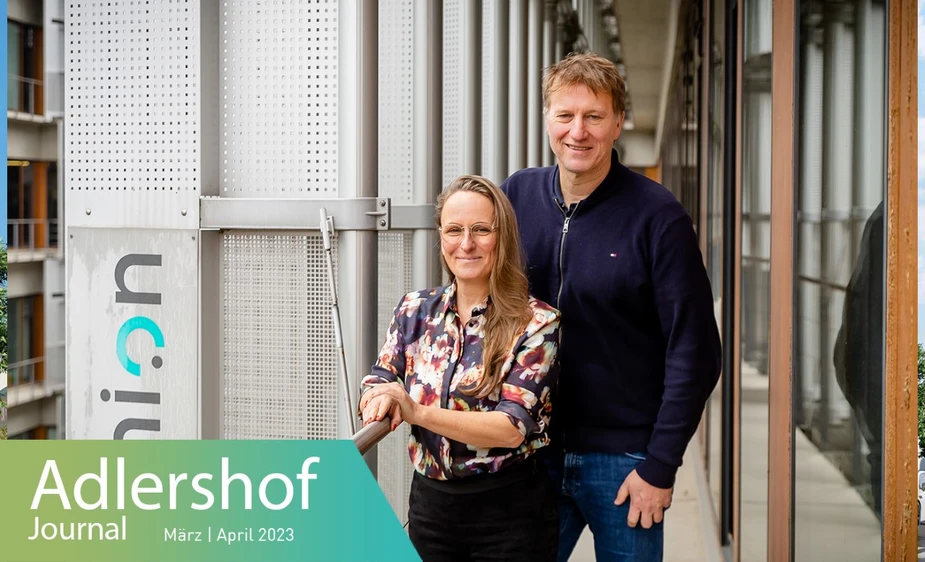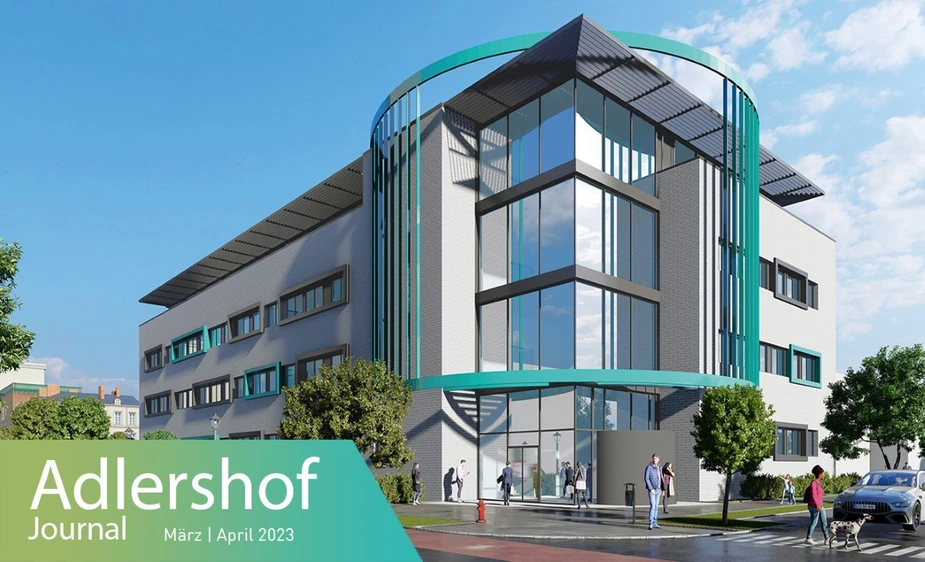Scienion and Adlershof grew in parallel
“We know how to handle even the divas among the molecules”
When I first started telling my staff that we would relocate to Adlershof, they were dumbfounded. They asked if I had lost my mind,” says Holger Eickhoff. “Back then, everything here had the same address. There were the remains of the Feliks Dzierżyński Guards Regiment; the broadcasting house responsible for Der Schwarze Kanal, an East German propaganda programme; none of this had a particularly good reputation. And it wasn’t considered a central location.” But at Adlershof, there was a new building with plenty of space for expansion. And that’s what the founder and CEO of Scienion GmbH was looking for in early summer 2001. The business plan was completed, and funding was secured. Now he needed laboratories to dole out biochips with special machines he had already developed at the Max Planck Institute for Molecular Genetics.
Biochips are tiny structures that make possible to measure various parameters of a sample simultaneously. “To do so, we use a kind of inkjet printer to place minimal amounts of liquids on special surfaces with very high precision,” explains Frauke Hein. Being a biotechnologist with years of experience in drug development, she has been leading Scienion together with Holger Eickhoff since June 2022. “Some of the molecules can act like divas. You have to know how to handle them.”
In addition to biochemical know-how, it also requires detailed knowledge about surfaces. It needs expertise in biology to understand the applications of the chips. And, of course, a talent for mechanical engineering to implement all this appropriately. “The machines we had were our competitive edge,” says Eickhoff. “That's why we never dreamed of selling them at the time.” However, more and more customers approached the Berlin-based start-up not asking for the chips but for the machines producing them. “At some point, we decided to give in. Since then, we either manufacture the chips for our customers or we build tailor-made machines for them.”
A wise decision: In 2004, Scienion received the Berlin Brandenburg Innovation Award for the second time – this time for its printing technology. That same year, the company passed a customer audit on first attempt, which included the FDA, the US food and drug administration. A funding round infused fresh capital. The company grew. Became profitable. New business areas were added, including single-cell analysis and contract manufacturing for customer diagnostic tests. And then came COVID. “The first thing I did was to close the company. After all, nobody knew what was going to happen,” Eickhoff recalls. “However, it took only about 14 days between the decision to close the company and launching a three-shift operation.” Suddenly, the whole world needed both, services for producing COVID tests and the appropriate machines for manufacturing them. “A Swedish corporation became aware of our existence, regarded our printing methods and products highly interesting, and offered to acquire the company.” The deal was closed in September 2020. Since then, Scienion has been firmly integrated into BICO (formerly Cellink), a Swedish life sciences group, and has again experienced considerable growth. “We now employ over 235 people worldwide,” says Eickhoff. “It became a bit much for one person.” That’s when he took Frauke Hein on board.
And started constructing a new building. “We currently have two facilities here in Adlershof and soon want to merge them,” he says. “Personally, it has been clear to me that we will stay at the site and build a building of our own that matches our needs. The decision was also made because WISTA did an excellent job in developing a top-level masterplan for the whole site.” Nevertheless, he wanted to hear his staff’s opinion. Did they want to stay too? Or would they prefer Königs Wusterhausen? Charlottenburg? Brandenburg? “The result was clear: Please let’s stay in Adlershof. We love it here!”
Kai Dürfeld for Adlershof Journal

